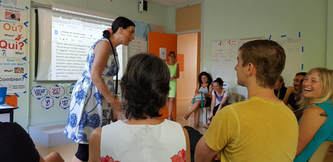 Sabrina Janczak in full flow at Agen 2018
Sabrina Janczak in full flow at Agen 2018 When I first heard about the Agen TPRS workshop, I was excited to have the opportunity to meet and learn from amazing teachers from around the world but I was a little apprehensive that it was for an entire week in the middle of my long awaited summer holidays. I arranged to attend the conference from Monday to Friday morning, planning to leave at lunchtime. However, after just a few days I could see why people love this week so much. The workshops, the presentations, the activities but even more so, the social aspect… picnicking in one of Agen’s beautiful parks as the sun was going down, chatting about pedagogy and motivation with other like-minded souls. I was sold. I was all in. I quickly cancelled Biarritz and booked the Friday night in Agen too so I could attend every session right up to the final one on Saturday morning.
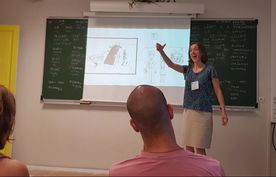 Diane Neubauer presenting 'Listen and Draw'
Diane Neubauer presenting 'Listen and Draw' 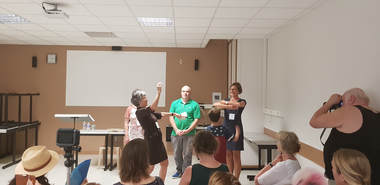 Susan Gross in her opening key-note address
Susan Gross in her opening key-note address
Susan Gross kicked us off with a witty, engaging, keynote address about the history of CI and TPRS on Monday afternoon after an ‘official welcome’ to Agen at the Mairie. For those who have not been to the Agen Workshop before, the mornings are ‘language labs’ where you can be part of a real language class for the week or simply drop in and observe some exceptional teachers, hand picked from around the globe, working their magic. The afternoons are dedicated to workshops and presentations focusing on various strategies that aim to increase our use of CI in the classroom by sharing our practice with one another.
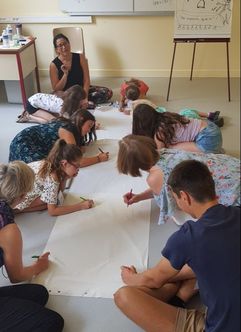 Margarita Pérez Garcia's Spanish class
Margarita Pérez Garcia's Spanish class In the afternoons, you have three choices to choose between. Although they are broken up into Track 1 (new to CI), Track 2 (developing with CI) and Track 3 (experienced with CI), in reality you end up jumping between the Tracks a little depending on your particular interests and what the presenters have planned. As I was presenting twice during the week I could not get to everyone but the ones I did see were all carefully planned, presented with enthusiasm and gave me a host of ideas to implement when I get back to school.
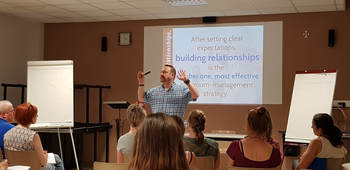 Scott Benedict on classroom management
Scott Benedict on classroom management 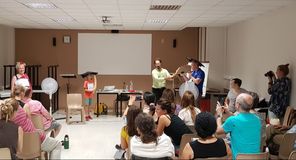 Jason Fritze's plenary on TPR and stories
Jason Fritze's plenary on TPR and stories - Autonomy: You get to choose which sessions you want to attend in the afternoons and which teachers to observe in the mornings; it is also very inclusive so you feel like your ideas and contributions have merit and are accepted by the group.
- Relatedness: There is an immediate sense of community and togetherness at the workshop as we are all working towards a common goal of boosting motivation and allowing students to acquire language naturally through CI. In many cases, we are ‘lone wolves’ in our respective schools, maybe the only CI teacher in the department, but at this workshop everyone is so passionate about CI and has seen its results. It brings everyone together immediately. The social events (especially the 2.5 hour lunches!) and also foster a genuine feeling of belonging as we chat together about pedagogy and teaching over the incredible French cuisine.
- Competence: Even if you are new to CI, by attending the workshop you start to feel like you can really implement some of the principles in your classroom. The more sessions you attend and more times you practice the techniques, the more comfortable and competent you feel about being a CI practitioner.
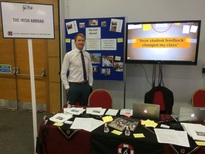
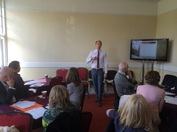
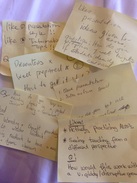

 RSS Feed
RSS Feed